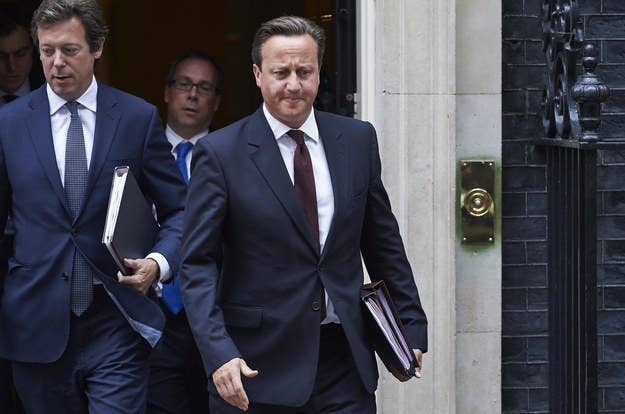
Last month David Cameron revealed to parliament during an emergency debate on the refugee crisis that he had authorised the targeted killing by drone of a UK citizen, Reyaad Khan, who had signed up as an ISIS fighter.
Cameron's revelation of the strike dominated the following day's headlines, which had previously been focused on the refugee crisis in the wake of the huge public response to photographs last month of the body of 3-year-old Aylan Kurdi washed up on a beach.
The prime minister revealed in his Commons statement that he had sought the attorney general's legal opinion before authorising the strike, which was carried out on 21 August and also killed another UK citizen, Ruhal Amin. Cameron said the strike was justified as both were a direct risk to UK national security.
However, the announcement – the first of its sort from the UK – also raised significant questions as to the legal basis for the strike, as well as the decision-making behind the timing of the public statement.
A human rights group has already said it intends to challenge Cameron's decision through judicial review, while commentators and academics alike have suggested the timing of the announcement served to divert attention away from debate of Europe's refugee crisis.
BuzzFeed News sent the following request to the attorney general's office, using UK freedom of information laws:

The Attorney General's Office has now responded to the request citing no fewer than seven different grounds on which it says any information – not just the legal opinion itself – cannot be disclosed to the public, including national security, international relations, and "protection of personal data".
The full list of exemptions cited by the public body is below.

Under the UK's FOI laws, most of the exemptions the government is relying on to keep the advice – and the discussions around it – from the public are "qualified" exemptions, which means the department is obliged to weigh up the public interest of disclosing the information against the public interest in keeping it secret.
Public bodies are told that they should generally lean in favour of making information public over withholding it. Unusually, the FOI officer in this case has set out in great detail why the government is not disclosing any information on this occasion.
"I recognise that it is in the public interest that society should, as far as possible, be able to understand and debate the decision taken to use lethal force in Syria against the Islamic State in Iraq and the Levant (ISIL)," the decision states.
"There is a public interest in demonstrating to the public that the government sought and received appropriate professional legal advice, and that this military action took place in accordance with the rule of law."
The letter then counters such provisions by saying maintaining the confidentiality of legal advice to ministers is of "particular importance" and the "strong public interest" in confidential advice is "heightened" in "matters of intelligence, defence, national security and foreign relations".
"Recognising the strength of the public interests in disclosure of this information, I am nevertheless of the view that those interests are substantially and clearly outweighed by the public interests in maintaining the qualified exemptions I have cited above."
The letter does not discuss the decision not to disclose any information around the timing of the announcement, or on how media requests relating to it would be handled.
The most high-profile FOI battle for legal advice was for the attorney general's judgment on the legality of the 2003 Iraq war, a decision eventually curtailed through a series of leaks which then led to the full publication. The attorney general in 2012 vetoed the publication of the cabinet minutes on going to war, following a seven-year legal fight which ended with an order to publish them.
The decision also confirms Cameron only informed the chair of the UN security council – who must be told of such strikes – the same day as his parliamentary statement, rather then when the strike was carried out on 21 August, two weeks before. Syria responded challenging the UK's justification for the strike on 17 September.
BuzzFeed News is appealing the FOI decision.
